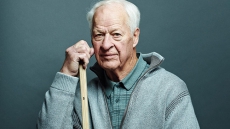An experimental drug aimed at treating a common liver disease came up with promising results at a clinical trial in the US.
People with non-alcoholic steatohepatitis (NASH) who took obeticholic acid (OCA) had improved liver health during that period, including decreased inflammation and fat in the liver and decreased body weight versus people receiving a placebo, the findings of FLINT, or the Farnesoid X Receptor Ligand Obeticholic Acid in NASH treatment trial, showed.
"The FLINT trial represents an important advance in the search for treatments for NASH. The causes of NASH are not fully understood, and causes and treatments may be different among patients," said Brent Neuschwander-Tetri, professor at the St. Louis University in the US.
The major feature of NASH is fat in the liver, along with inflammation and damage.
Over time, these may lead to loss of liver function, the need for liver transplant and death.
"Although obeticholic acid did not eliminate liver disease in FLINT participants, it demonstrated a promising effect. Larger studies will be required to determine the drug's safety and efficacy," said Averell Sherker from the National Institute of Diabetes and Digestive and Kidney Diseases.
For the study, 283 people were enrolled at eight centres across the country.
At the start of the study, participants were 18 and older and had been diagnosed with definite or borderline NASH.
They were randomly assigned to one of two groups: one took 25 milligrams of OCA daily and one received a placebo that resembled the OCA pill.
However, OCA was also associated with increases in itching and total cholesterol.
The findings were published online in The Lancet.






